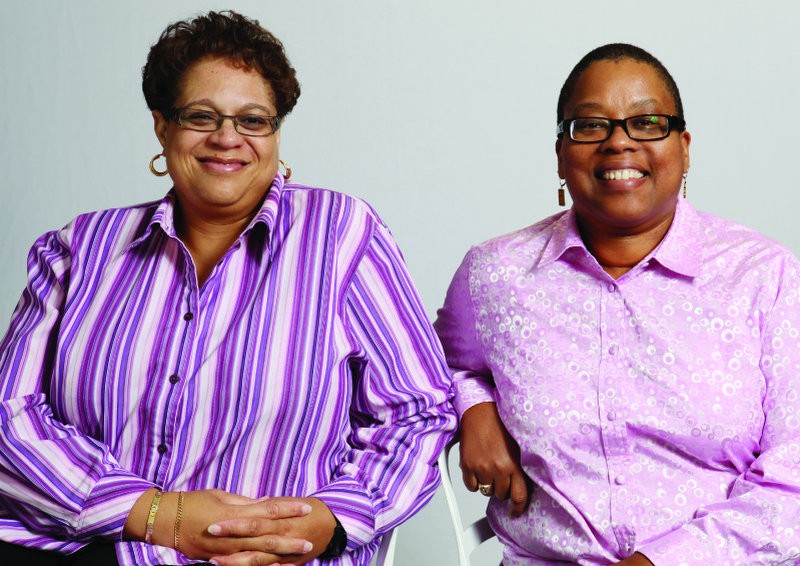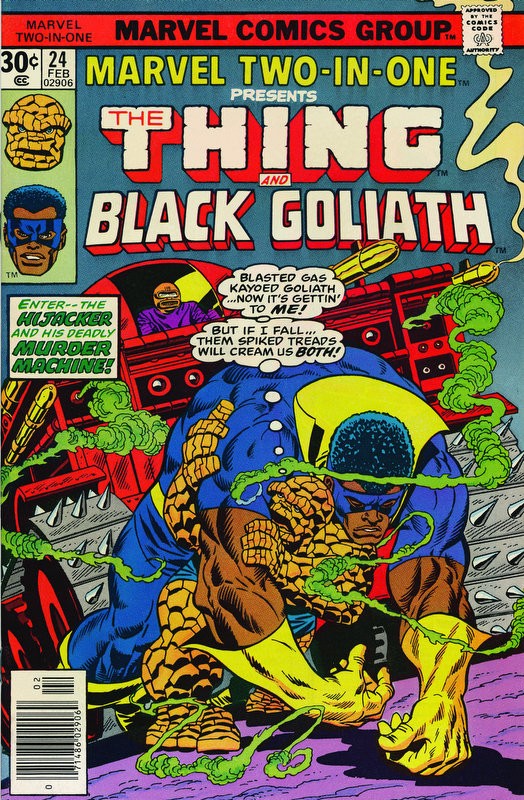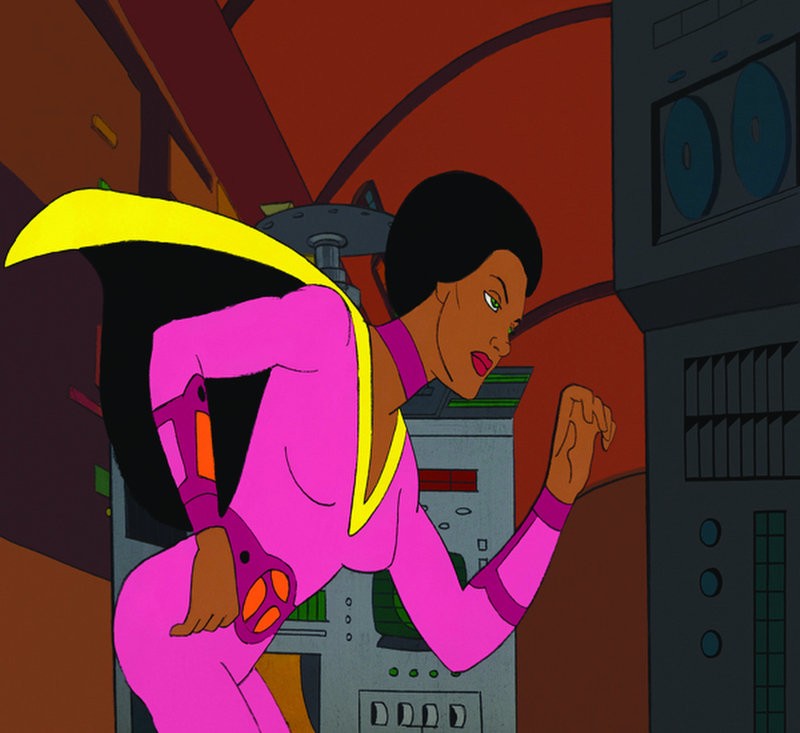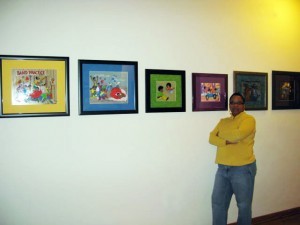Pamela Thomas remembers the moment when she realized her hobby was a little different from knitting. It was when she found herself trying to get to the post office before it closed, so she could send off more than $2,000 in money orders to fund her “addiction.”
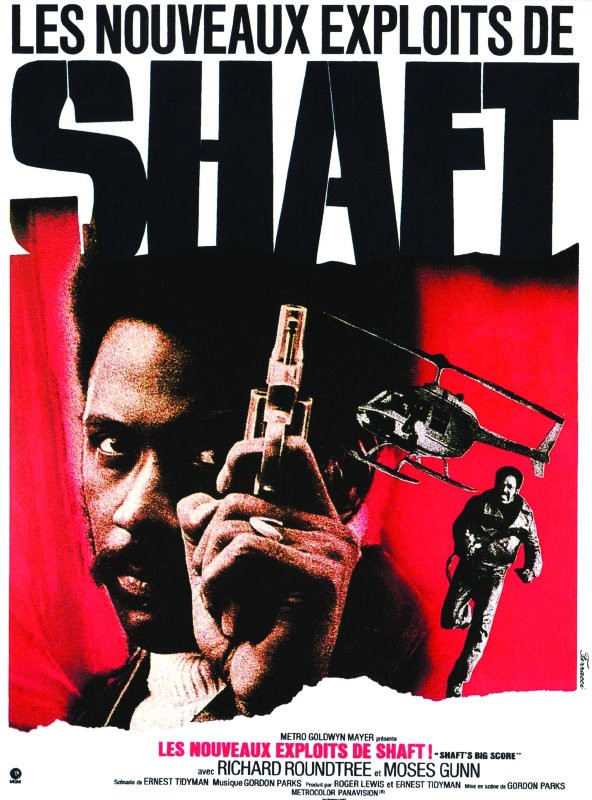 “That’s when you know you’ve crossed the line from a passion to something clinical,” she says.
“That’s when you know you’ve crossed the line from a passion to something clinical,” she says.
What she’d get by return mail was pop art: Cartoon animation cells. Obscure blaxploitation movie posters. African-American superhero comic books.
Then, she met Loreen Williamson — and when the two combined their lives, Williamson brought along her equally extensive collection of black musical recordings.
They joked that, between the two of them, they had enough for a museum – so much it couldn’t all be stored in their Somerset County home.
But the joke quickly wore thin, nagged at them.
They desperately wanted people to see their collectibles — some controversial, others extremely rare — so folks could understand how pivotal such pop art was to the black experience.
And, by extension, the American experience.
Their solution was virtual: An online archive, the Museum of UnCut Funk, begun in 2009. (The title references the funkadelic music of the ’70s.)
It has a virtual curator (Thomas, 53, blogging under the name Sista ToFunky), its own Twitter account and even a virtual cafe (“because all great museums offer a cafe for their visitors”).
Admission is free — but don’t forget to stop by the gift shop on your way out.
Next came the idea of trying to stage an actual exhibit in a brick-and-mortar museum. They sent out queries to museums, outlining what they could offer.
“We did a first round and we got crickets,” Williamson recalls. “Nothing.”
They retooled their pitch to explicitly make the connection between the civil rights movement of the ’60s and the flowering of black-oriented pop culture of the ’70s.
They made the case that one of the unexplored fruits of the movement was watching Saturday morning cartoons, still in your jammies while eating your cereal, and knowing that some of the characters might be black.
From the character of Fat Albert to comic Flip Wilson, music producer Berry Gordy, actress Pam Grier, TV’s “I Spy” and films such as “Shaft” and “Foxy Brown” — they all represented more, in the long run, than fleeting entertainment.
“We make the connection — and we’re not kidding — that we’re the first generation to elect a black president,” says Williamson, 51. “Your childhood experience helps form the adult beliefs that you have.”
Read more of this article at Inside NJ
By Kathleen O’Brien | NJ Advance Media for NJ.com
on February 04, 2016 at 8:00 AM, updated February 12, 2016 at 12:56 PM
Kathleen O’Brien may be reached at kobrien@njadvancemedia.com. Follow her on Twitter @OBrienLedger. Find NJ.com on Facebook.

